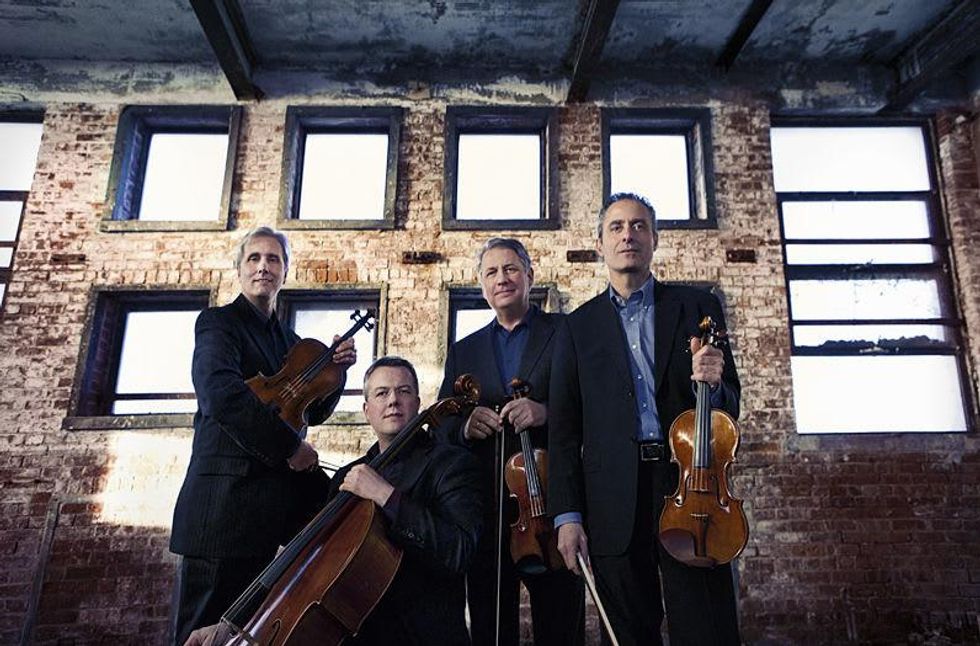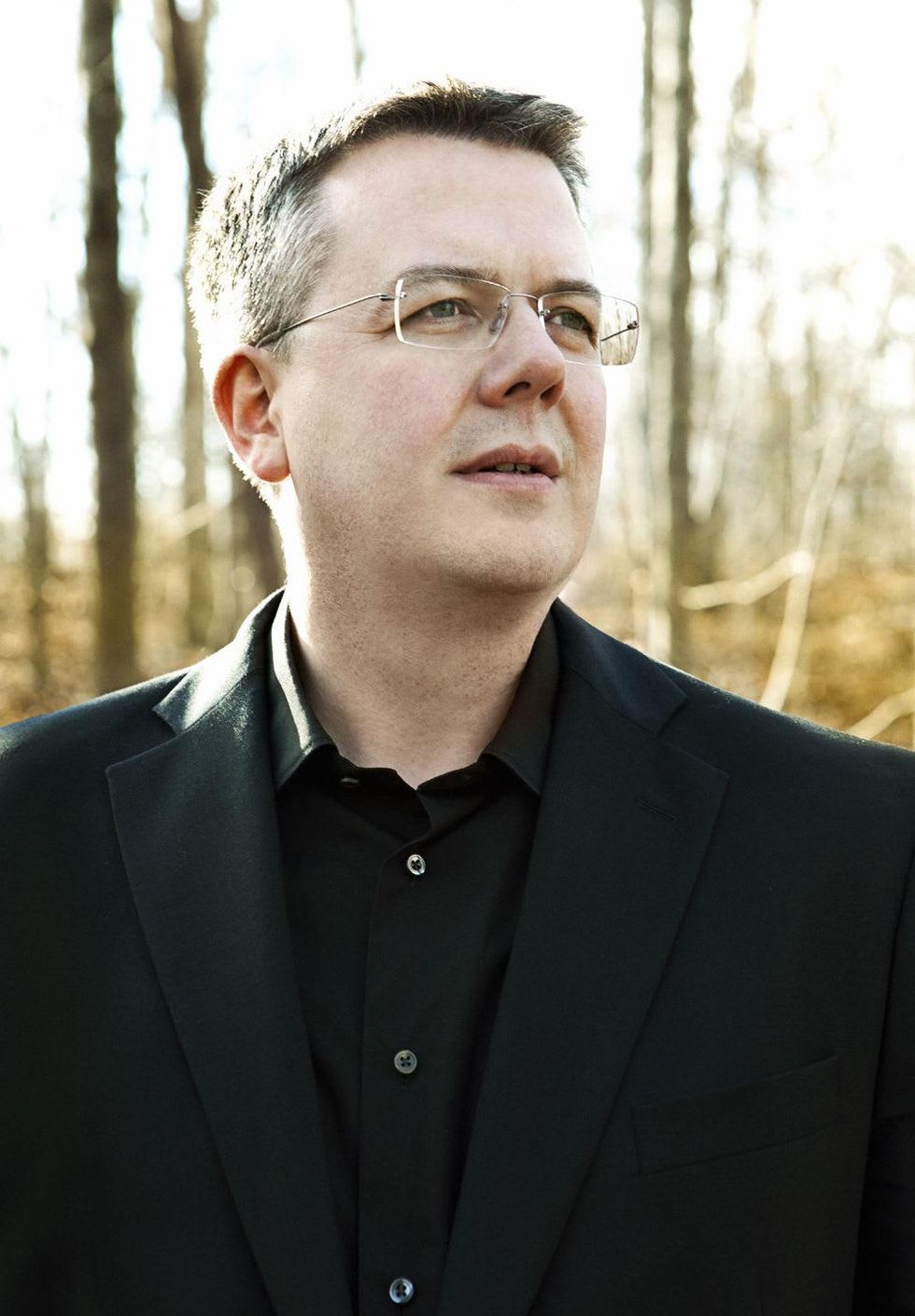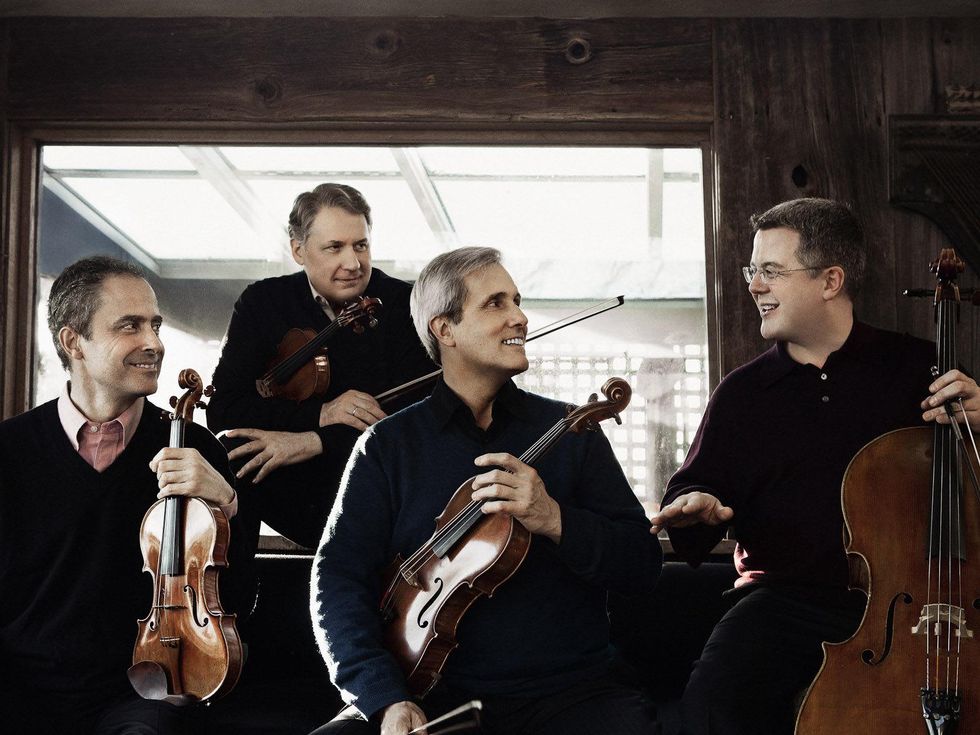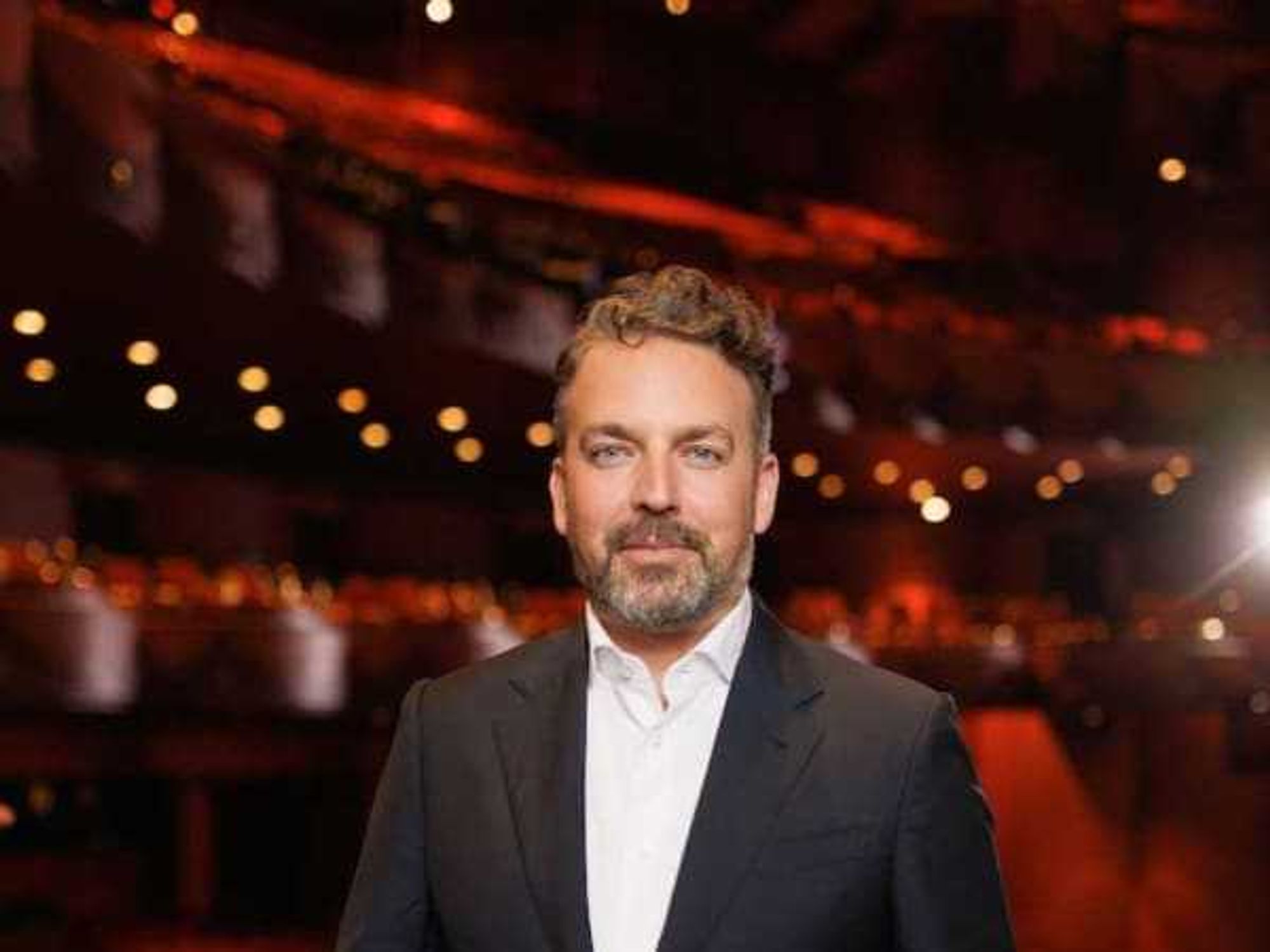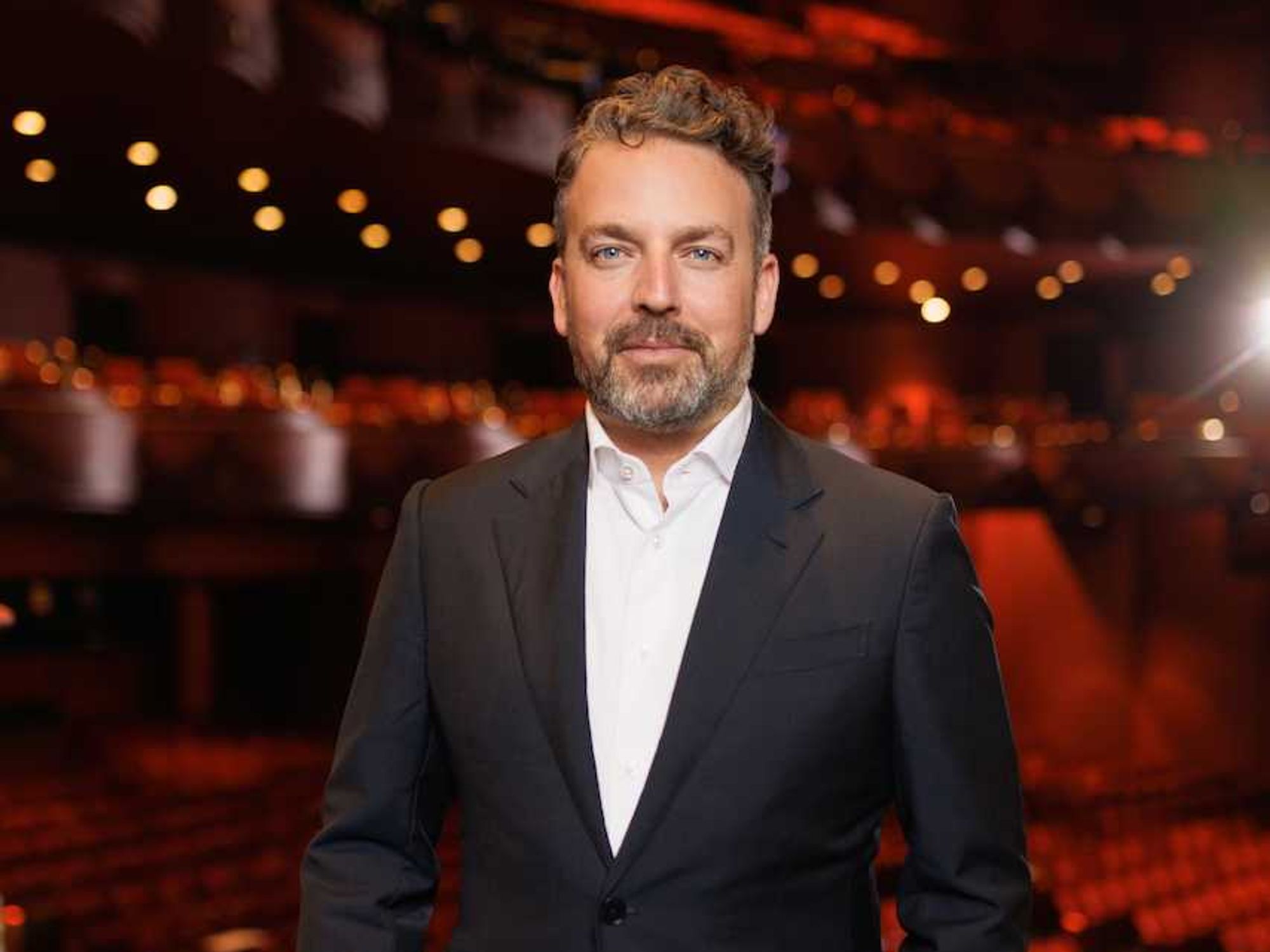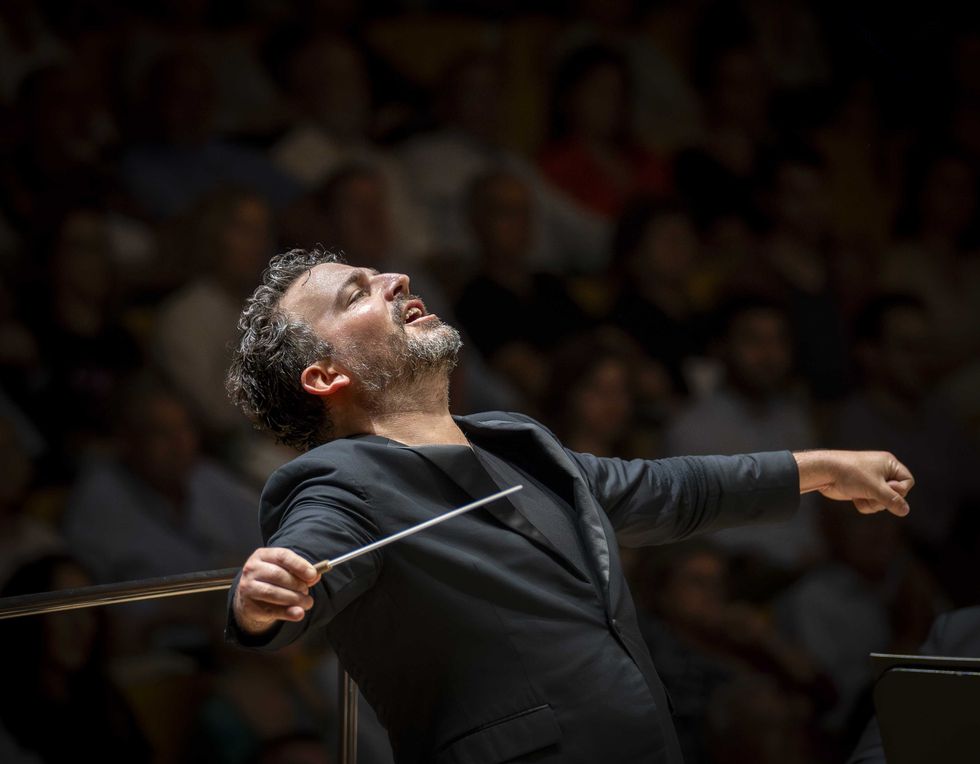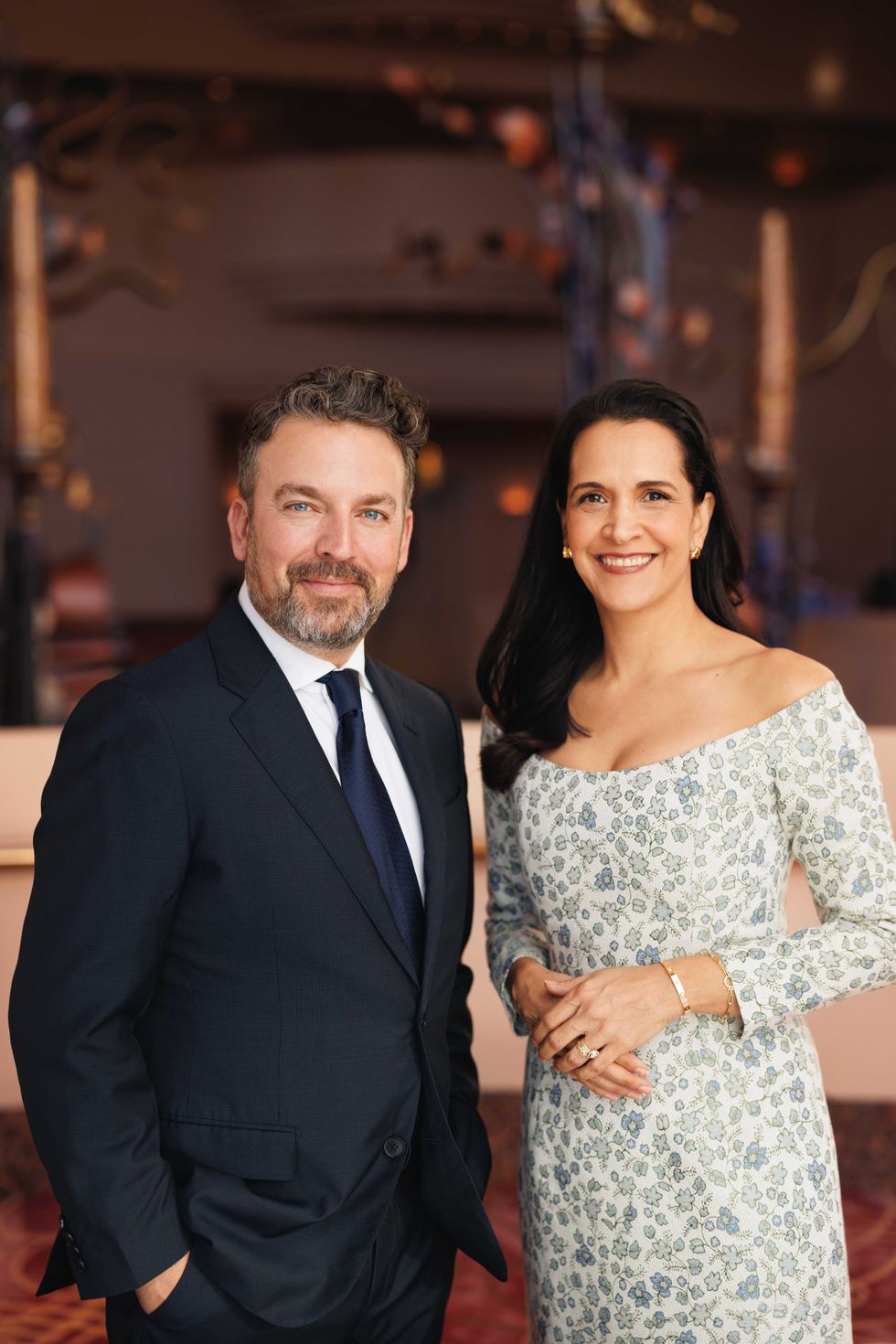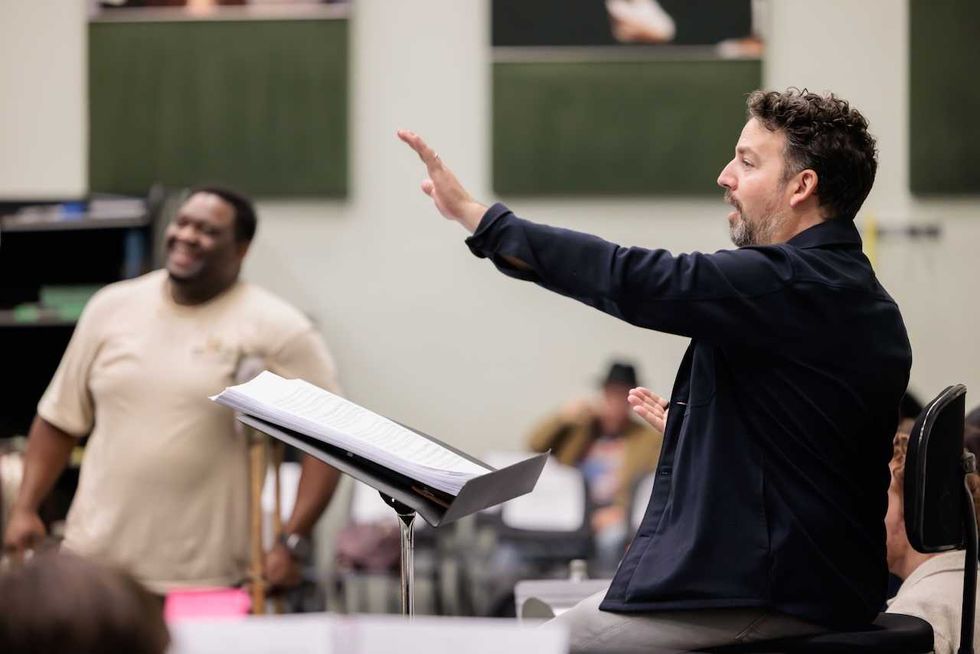The CultureMap Interview
Fab Four: Tuneful troupe freshens up with star replacement
I will never forget the first time a music coach described chamber music-making as a passionate polyamorous affair. As if relationships weren't hard enough, the idea of harmoniously getting along with multiple colleagues — each with his or her own needs, wants and ideas — was the reason for evaluating not only players' musical dexterity, but also their personalities during placement auditions.
You either mesh or you don't.
If shrinks that specialized in chamber music existed, surely they would make a killing.
Imagine being in the position of the Emerson String Quartet, which saw itself having to replace retiring cellist David Finckel, who played with the ensemble for 34 years. That's longer that many marriages.
"My playing in the last year has become perhaps a bit more legato, maybe richer, possibly a bit louder and just very confident."
Ultimately, the group chose noted cellist and conductor Paul Watkins. The Emersons, in its new configuration, will make its Houston debut on Tuesday in a concert at the Shepherd School of Music that closes the 2013-14 season of Chamber Music Houston, formerly known as Houston Friends of Chamber Music.
Watkins, who plays on an instrument crafted in 1846 by French luthier Jean-Baptiste Vuillaume, has been featured with all the major British orchestras. The Welsh musician is the principal conductor and music director of the English Chamber Orchestra and the principal guest conductor of the Ulster Orchestra in Belfast, Ireland. As a chamber musician, he has performed with the Nash Ensemble and collaborates regularly with the big wigs of the genre.
Having replaced 25 percent of the foursome, Watkins' introduction to one of the most prolific string quartets in history renders the Emerson String Quartet a fresh ensemble. It's with this idea in mind that I chatted with Watkins over the phone to learn more about the audition process and about his new life as a member of this established tuneful troupe.
CultureMap: I imagine coming in to an ensemble that has performed as a unit for countless years has its challenges. Did you feel like a "fourth wheel" as you became acclimated with the Emersons or was it love at first sight?
Paul Watkins: It was love at first sight. That's the only way this would work. There would have to be very strong chemistry from the get go. Luckily, there was. If I were to consider moving to the U.S., a big upheaval for my family and I, there had to be that special feeling.
CM: Was there an audition?
PW: We decided to meet after initial phone calls just to see if I was interested in making this move. We gathered in Gene Drucker's apartment in New York to play through Beethoven's String Quartet No.1, Op.18 No.1. We didn't say very much. We wanted to know if we liked the feeling of playing together and if we liked the overall sound.
We played through other quartets that I happened to know well. And it worked.
It's difficult to describe the feeling when things click. We had good intonation, good ensemble — the basic ingredients of music making.
CM: When was the last time you had to perform an audition of this importance?
PW: A long time ago, although this wasn't really an audition in the formal sense. Larry and Phil had already played with me in other ad hoc chamber music groups and we got along great. I hadn't played with Gene before. Based on our past experience, I had a feeling the chemistry would be right.
And about the last audition? I was 20 years old when I auditioned for the principal cello spot of the BBC Symphony Orchestra. That was 24 years ago.
CM: I'd imagine that working in such proximity to Lawrence Dutton, Eugene Drucker and Philip Setzer has influenced your own style. Yes?
"With the Emerson Quartet you are going to get not just the highest technical quality, but also real depth, a kind of forensic approach to the music in which no note is left unturned."
PW: I would say that my playing in the last year has become perhaps a bit more legato, maybe richer, possibly a bit louder and just very confident.
Playing string quartets is risky business on stage: Four highly individual voice plus often complicated music. My colleagues give me incredibly confidence. They are all such flexible musicians. There's a great feeling of support.
CM: Has the sound of the group changed with you in it? How have you influenced their music making?
PW: In a way it's presumptuous to describe my role here, but I think that the sound of the quartet is more relaxed and a little warmer, a style that I brought from my previous experience.
CM: I read that there was a handover ritual in which you performed the Schubert's String Quintet with David in the mix. Tell me about that experience.
PW: That was wonderful. I have immense admiration and respect for David. It was really important for me and the quartet to have a symbolic coming together. The did this in two nights. The first night I played the second cello part next to David. The second night, I played the first part. Old Emerson, new Emerson.
CM: Amid a rapidly changing music world, one in which new ensembles find it necessary to find a schtick, what is it about the Emersons that makes them timeless and relevant?
PW: That's such an interesting question. Not as a member of the quartet but as someone who’s listened to all their recordings over the years, I always felt that with the Emerson Quartet you are going to get not just the highest technical quality, but also real depth, a kind of forensic approach to the music in which no note is left unturned. This is a very dynamic quartet that loves to perform. There's visual excitement in performance.
CM: First time in Houston? Have you performed here before?
PW: I have never been to Houston but I do have a Houston connection. My wife (Jennifer Laredo, daughter of violinist Jaime Laredo and pianist Ruth Laredo), her stepmother is cellist Sharon Robinson of the Kalichstein-Laredo-Robinson Trio. Sharon is from Houston and her parents (Keith Robinson and Dorothe Fowler) were both members of the Houston Symphony. He was the principal bassist and she was in the violin section.
___
Chamber Music Houston presents the Emerson String Quartet on Tuesday, 7:30 p.m., at the Shepherd School of Music. Tickets start at $20 and can be purchased online or by calling 713-348-5400.
